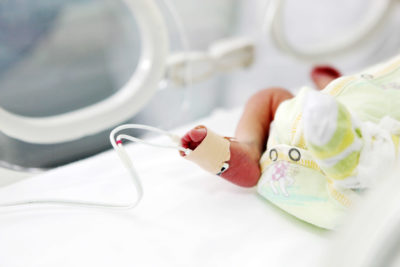Speak with our birth injury team today
CALL 0800 083 5500

In April 2022, the CQC carried out an inspection of maternity services in Gloucestershire, which reported dangerous levels of staff shortages and a lack of leadership.
The report lowered the Gloucestershire Royal Hospital’s 2016 rating of good to inadequate, showing a decline in the safety of services and effectiveness of leadership, putting women and babies that rely on the service at risk of otherwise avoidable harm.
The understaffing of maternity services seriously affected the hospital’s ability to provide adequate care to those using it, and there were consequences on many levels. Firstly, it was reported that not all women on record received one-to-one care during labour and that certain shifts were flagged for having a dangerously low number of midwives available. This impacted the staff’s ability to monitor the safety of women and babies and increased the risk of a failure in care.
The shortages also impacted staff’s ability to attend important and sometimes mandatory training.
The shortages also impacted staff’s ability to attend important and sometimes mandatory training. This was reflected in low compliance rates in standard and maternity-specific training and threatened the maternity section’s ability to improve its inadequate service. The shortages caused staff to feel undervalued and overworked and the report showed low morale amongst those working in maternity. Concerns were raised about workplace culture and a lack of support, which can be traced back to the second main issue raised by the inspection, leadership.
The maternity section’s leadership was reportedly aware of the issues raised in the report but lacked a clear strategy to improve their services. This allowed systematic flaws to manifest amidst staff shortages such as failure to check equipment daily, as well as brief and ineffective investigations into safety incidents.
A poor incident reporting culture was also highlighted, as well as a lack of analysis of collected data. Failure to learn from incidents and improve the quality of care creates a wealth of avoidable risks. It could lead to repeat incidents with consequences for women and babies that stem from ineffective monitoring and leadership.
Delayed staff appraisals were also noted, contributing to poor monitoring of the quality of services. A general struggle to get information to staff is shown in the report, with misinformation about social distancing guidelines and the inaccessibility of staff support systems being noted as examples. The CQC has recommended a review of leadership and culture to improve service delivery despite staff shortages. The hospital aims to reduce staff vacancies as they emerge from the pandemic and are being monitored by the CQC to ensure their maternity ward is better run and provides safer services to women and babies.
Blackwater Law medical negligence solicitors are experienced in advising clients in relation to claiming compensation for injuries and ailments sustained during birth. This includes injuries to the mother, baby or negligence caused by a midwife.
The experience and reputation of the team at Blackwater Law mean they are approached for advice by families across the country. Our team is accredited by the Legal 500. It is recognised as one of the leading teams of medical negligence lawyers in the South East.